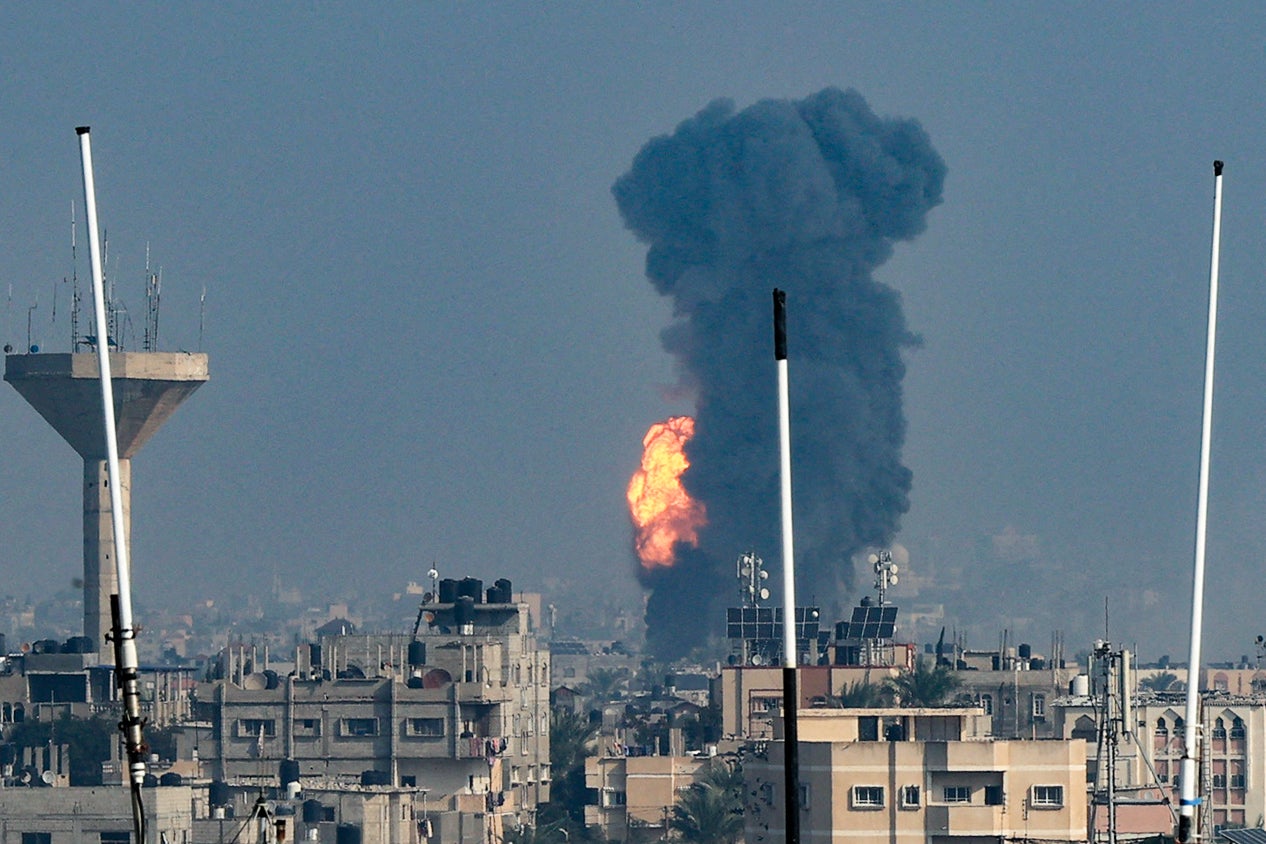Israel may have found itself in an unwinnable war
Editorial: The pity of this war is that even the total obliteration of Gaza will not bring victory, still less safety and security, to the Israeli people

Henry Kissinger, with his usual cold clarity, once remarked that America had made two mistakes with regard to the Vietnam war. The first was going in; the second was not winning. As a result, the US was embroiled in a conflict that lasted two decades and resulted in the nation’s first ever defeat. Much the same might be said for the more recent American-led invasions of Afghanistan and Iraq. It also looks like Dr Kissinger’s insight could be applied to Israel’s war against Hamas in Gaza.
After the unspeakable atrocities perpetrated by Hamas on 7 October – not disputed even by the militants’ apologists – it was inevitable that Israel would react, and retaliate.
The nation had a right to defend itself, and it had been invaded. A military operation was the predictable consequence, as Hamas well understood. It may even have been their primary purpose to provoke Israel into a quest for revenge, and create an unstable situation where Israel might eventually find itself isolated in the international community, and compromised militarily in bombed-out urban warfare, under which conditions the Israel Defence Forces (IDF) are not well placed to prevail.
Hamas may also have gambled that the conflict would spread to the West Bank and southern Lebanon, and draw in other regional players, such as Egypt, Turkey and Jordan. That has not transpired. But Israel has, to an uncomfortable degree, taken the bait laid by Hamas, and embarked upon a war it cannot, in any lasting, meaningful sense, “win”.
The taking of hostages turned out to be another way for Hamas to entice the IDF to enter Gazan territory and then stay there for as long as there were any unaccounted for. Perhaps the ceasefire was indeed another cynical Hamas move to win time at a crucial juncture in the hostilities.
Equally cynical, it seems that Hamas ended this ceasefire by lobbing a missile at Israel. As has been well-noted, even if Israel offered an armistice, Hamas is under no obligation to accept it – and has its own reason for breaking it. The suffering of the Palestinian people means nothing to Hamas.
In some more rational, parallel universe, Israel might instead have made the most limited of raids into Gaza, and concentrated instead on radically improving the flimsy defences of the kibbutzes neighbouring Gaza. It may also have beefed up its intelligence and surveillance efforts. That was never going to be a realistic response, and now that Israel has gone in, it needs to contemplate what “not losing” this war looks like.
Obscured by the concrete dust and the hundreds of thousands of refugees on the move, it is not at all clear what Israel’s endgame actually is. The latest objective is the “unconditional surrender” of Hamas. That hope is posited on the notion that it would at some point be in the interests of Hamas to do so; that a “new Hamas” would not simply emerge to continue the armed struggle under the political leadership safely ensconced in Qatar; and that other jihadi groups wouldn’t sprout in the coming months, years and decades to come.
All experience in the region suggests that no such unconditional surrender, even if secured, would mean the end of terrorism. The fact is that the manner in which the Israelis have conducted this war has merely created millions more grievances, and thousands more potential fighters.
Israelis may be like any other nation, and entitled to conduct warfare to defeat an enemy bent on their destruction. They seem to have some justification for their plea that Hamas use hospitals as cover, and civilians as human shields. The IDF do warn people to get out and flee for their lives. But, as Israel’s best friends advise, their war must be conducted within international law, and it must be both merciful and proportionate.
When the world sees the images emerging from this war they look more like a deeply uneven contest, with the Israelis practising indiscriminate bombing, imposing a vicious medieval-style siege, and maximum possible force (short of deploying nuclear weapons). All that television viewers see is dead Gazan children, and vast areas of rubble where once there were apartment blocks, bakeries, schools and clinics.
The pity of this war is that even the total obliteration of Gaza will not bring victory, still less safety and security, to the Israeli people. Dr Kissinger might well have told Benjamin Netanyahu to review his strategic options.



Join our commenting forum
Join thought-provoking conversations, follow other Independent readers and see their replies
Comments